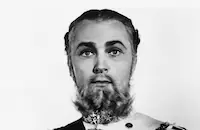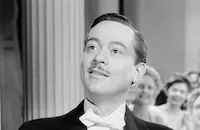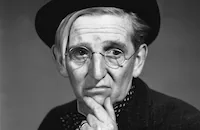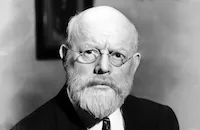Smart Woman

Brief Synopsis
Cast & Crew
Edward A. Blatt
Brian Aherne
Constance Bennett
Barry Sullivan
Michael O'shea
James Gleason
Film Details
Technical Specs

Synopsis
In a Los Angeles court, a grand jury votes to have a special prosecutor appointed to indict District Attorney Bradley Wayne on charges of obstruction of justice. The grand jury has evidence that "J.J." Smith, the missing chief witness in its election fraud case against elected official Fred Johnson, is being held by Wayne and the gang of racketeers he controls. The racketeering boss, Frank McCoy, blackmails attorney Paula Rogers into defending Johnson, and she reluctantly goes to trial against a slick special prosecutor named Robert Larrimore. After being asked to sign a petition sponsored by the Good Government League to have Robert recalled as special prosecutor, Robert's assistant, Sam Corkle, goes to the League's headquarters and finds a letter addressed to "James Smith" at the Eureka Hotel. Although Dr. Harvey Jasper, who runs the League, warns Smith to flee the hotel, he is picked up by Robert and the police and is forced to testify. During Smith's testimony, Paula receives an order from McCoy to change Johnson's plea to guilty, and she loses the case. Following the trial, Robert and Paula begin dating and fall in love, despite the efforts of reporter Johnny Simmons to thwart their romance. Johnny is constantly coming over uninvited to Paula's mother's house, where Paula lives with her teenage son Rusty, to propose to her and eat dinner. Robert and Sam, meanwhile, try to locate Jasper in order to indict Wayne. McCoy orders Paula to spy on Robert, and while sailing on his yacht, Paula finds a note describing Jasper's whereabouts. Later, when McCoy demands the information, Paula lies to protect Robert, and McCoy tells her that Robert will never marry her because his ambition to be governor will not allow scandal. One night, after Robert takes Rusty sailing, Robert and the police find Jasper dead in the League office. Robert finally confronts Wayne in person and threatens to indict him. Wayne retaliates by trying to have Robert killed in a parking garage, but he is saved by a screaming witness. Robert later proposes to Paula, and she agrees to marry him. Wayne, meanwhile, has decided to blame McCoy for Jasper's murder, and one night, tries to pay him to take the blame and put his fingerprints on the murder weapon. In a struggle, the gun goes off, and Wayne is killed. McCoy manipulates Paula into defending him at his trial, and she breaks her engagement with Robert, who is the prosecuting attorney. At the trial, Mrs. Wayne, who overheard her husband threatening McCoy moments before he was shot, perjures herself on the witness stand. As Paula is about to lose her case, she decides to testify herself. In an appeal to Mrs. Wayne's motherhood, Paula explains that she, too, has hidden the unpleasant truth about her son's father in order to spare his feelings. She then confesses that McCoy has been blackmailing her with the knowledge that he is Rusty's father. Later, Robert obtains a signed statement from Mrs. Wayne admitting her husband's guilt and gives it to Paula so she can win her case. After Robert convinces Paula to marry him, Johnny enters to grab a snack.

Director
Edward A. Blatt
Cast

Brian Aherne

Constance Bennett

Barry Sullivan

Michael O'shea

James Gleason

Otto Kruger

Isobel Elsom

Richard Lyon

Selena Royle

Taylor Holmes

John Litel
Nita Hunter
Lee Bonnell

Iris Adrian

Willie Best
Horace Mcmahon
Benny Baker
Al Bridge
Larry Haze
Robert Riordan
Phyllis Kennedy
John Phillips
Jimmy Ames
Paul Bryar
George Carleton
Phil Arnold
Frederick Pressel

Jack Mower
Carl Faulkner
Ralph Sanford
Doris Kemper
Milton Parsons
Harry Strang
Andy Andrews
Michael Gaddis
Stanley Blystone
Margaret Tracy

Eddie Gribbon
Houseley Stevenson
Joseph Fields
Gladys Blake

John Eldredge
Lesley Farley

Charles Lane
Wallace Scott
Peter Virgo
Douglas Aylesworth
Paul Gustine
Lois Austin
Thomas E. Jackson
Charles Evans
Frank Mayo
Jimmy O'gatty
John H. Elliott
Cliff Clark

Paul Maxey

Jimmy Conlin
Edward Gargan
Netta Packer
Anne O'neal
Wally Walker

Howard Mitchell
Meyer Grace
Crew
Adrian
C. Bakaleinikoff
Alvah Bessie
Ray Boltz Jr.
Bernard W. Burton
William Calihan Jr.
Mary Chaffee
Lela Chambers
Hal E. Chester
Glenn Cook
Stanley Cortez
G. Joseph Dell
Willard George
Dave Grayson
Frank Gross
Louis Gruenberg
Leon Gutterman
Kenny Kessler
Madison Lacey
Tom Lambert
Harry Lewis
Otho Lovering
Lorraine Maclean
Herbert Margolis
Louis Morheim
Melville Shyer
Adela Rogers St. Johns
F. Paul Sylos
John D. Weiler
Edwin V. Westrate

Film Details
Technical Specs

Articles
Smart Woman (1948)
Smart Woman (which has nothing to do with the 1931 film of the same title starring Mary Astor) was distributed by Allied Artists, a recently formed subsidiary of Monogram Studios designed to handle higher-budget productions -- although for the poverty-row Monogram, "high budget" was a relative term. Still, the extra money explains why Smart Woman is much more polished and glamorous-looking than the usual Monogram title. The story finds Bennett as a defense attorney locking horns (and finding romance) with a special prosecutor (Brian Aherne), as he fights a crooked district attorney (Otto Kruger, providing his trademark subtle menace). The plot hinges on whether Bennett will be forced to reveal her former marriage to the racketeer she is defending (Barry Sullivan).
Reviews were excellent. In addition to much praise for the high-caliber cast, including the re-pairing of Bennett and Aherne, who had previously starred together in Merrily We Live (1938), critics found the story immensely satisfying and technically accomplished. "A smartly done story of political corruption," said The Hollywood Reporter. "Clever basic story idea is well developed in an intelligently written script which has the good sense to remain plausible and realistic in the face of some tall situations... Constance Bennett takes a colorful part and plays it to the hilt, at the same time that she displays a typically intriguing Bennett wardrobe."
Variety deemed Bennett "excellent, ...smartly gowned by Adrian," and lauded the film's "thrills, love interest, tension and neatly spotted comedy relief. Story employs the much-used murder trial climax but gets a new twist to it... Picture classes as a top-grade supporting feature that will stand top billing in the sticks and nabes. Hal Chester's production again demonstrates that he has a knack of getting high value out of low budget."
Chester, the film's credited producer, was best known at the time for producing the Joe Palooka film series for Monogram; a few years later, he would set up shop as an independent producer in England, where he turned out several movies including the Jacques Tourneur-directed Night of the Demon (1957), one of the finest horror films of the era.
Smart Woman was shot by Stanley Cortez, one of the great cinematographers, who also photographed The Magnificent Ambersons (1942), Since You Went Away (1944), and, later on, The Night of the Hunter (1955).
Co-screenwriter Alvah Bessie would soon be blacklisted as one of the Hollywood Ten, virtually ending his career. Bessie was also a novelist, much praised by Ernest Hemingway. He had written the story for the great combat film Objective, Burma! (1945), for which he was Oscar®-nominated, and also was co-writer of the fine film noir Ruthless (1948). After his blacklisting, Bessie wrote another film, Passage West (1951), credited to his "front," Nedrick Young, and became a publicist and book reviewer.
Smart Woman was the third of just three features directed by Edward A. Blatt, following Between Two Worlds (1944) and Escape in the Desert (1945) (the latter a remake of The Petrified Forest [1936]). Blatt had previously worked as a dialogue director at Warner Brothers, with credits including They Died with Their Boots On (1941), Across the Pacific (1942) and Watch on the Rhine (1943). Variety praised him for Smart Woman, declaring "Edward Blatt has paced the action smartly, put dramatic emphasis in the right spots and obtained full value from the able cast."
By Jeremy Arnold

Smart Woman (1948)
Quotes
Trivia
Notes
This film marked the last production of Constance Bennett's company, Bennett Productions, Inc. Smart Woman was also the last Hollywood picture written by Alvah Bessie under his own name. In 1947, in his testimony before the House Un-American Activities, Bessie refused to affirm or deny his membership in the Communist Party. Along with nine other producers, screenwriters, directors and actors, Bessie became one of the "Hollywood Ten" and was convicted of contempt of Congress and sentenced to prison. Although Bessie did contribute to some later Hollywood projects, which were attributed to other writers, he did not receive an onscreen credit under his own name until the 1973 Spanish film España otra Vez. [For more information on HUAC, please see the entry above for Crossfire.]














